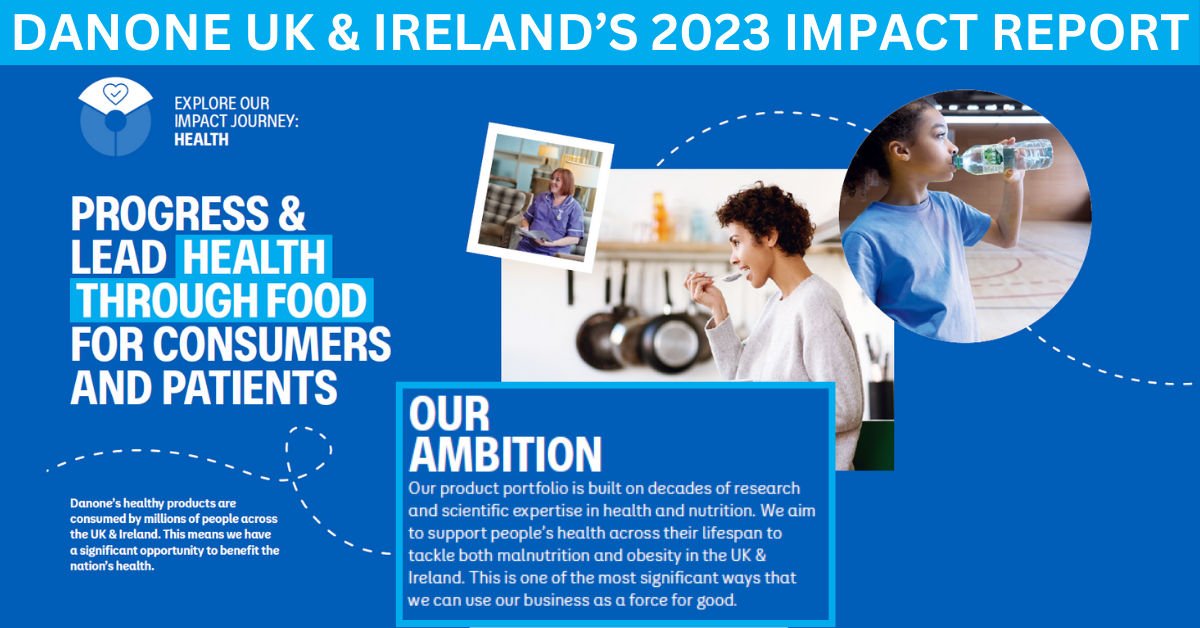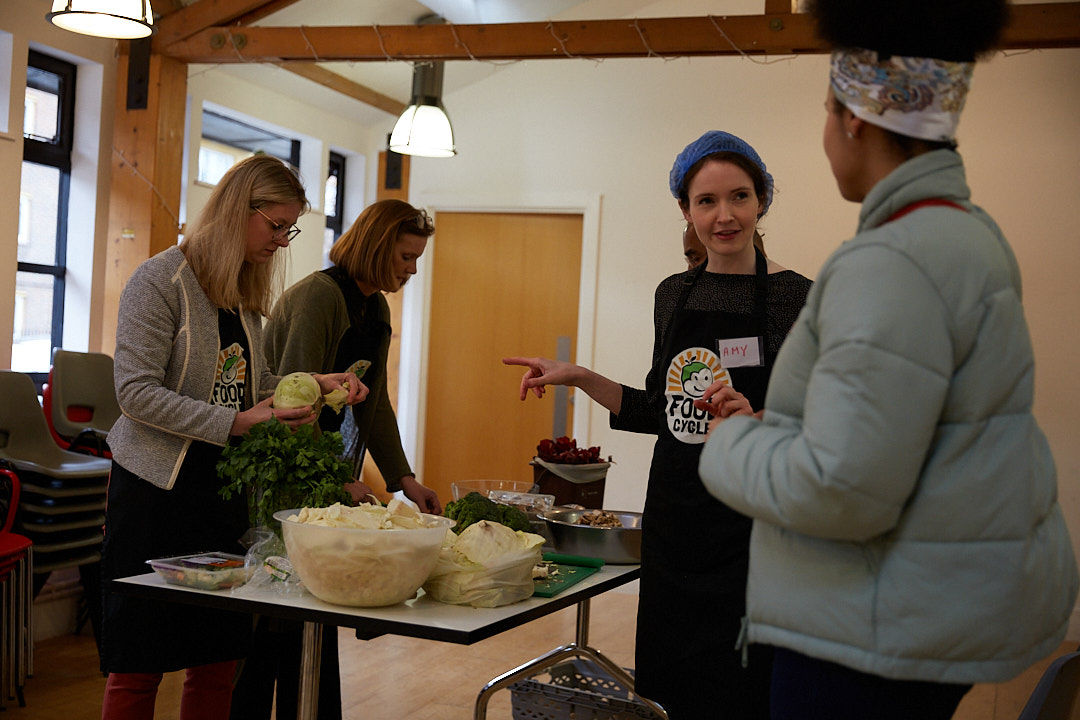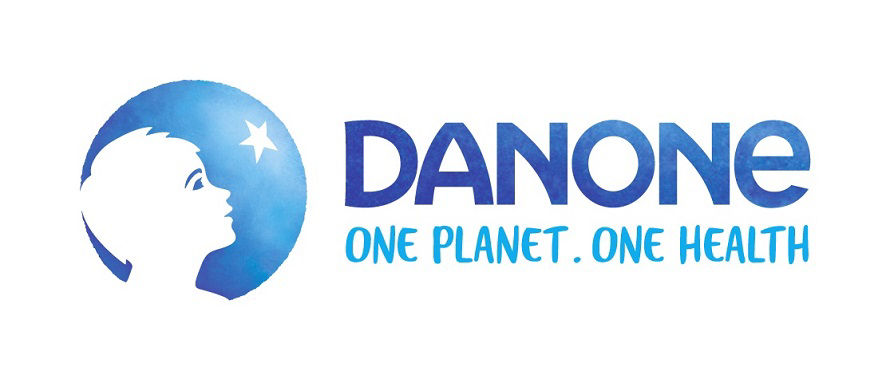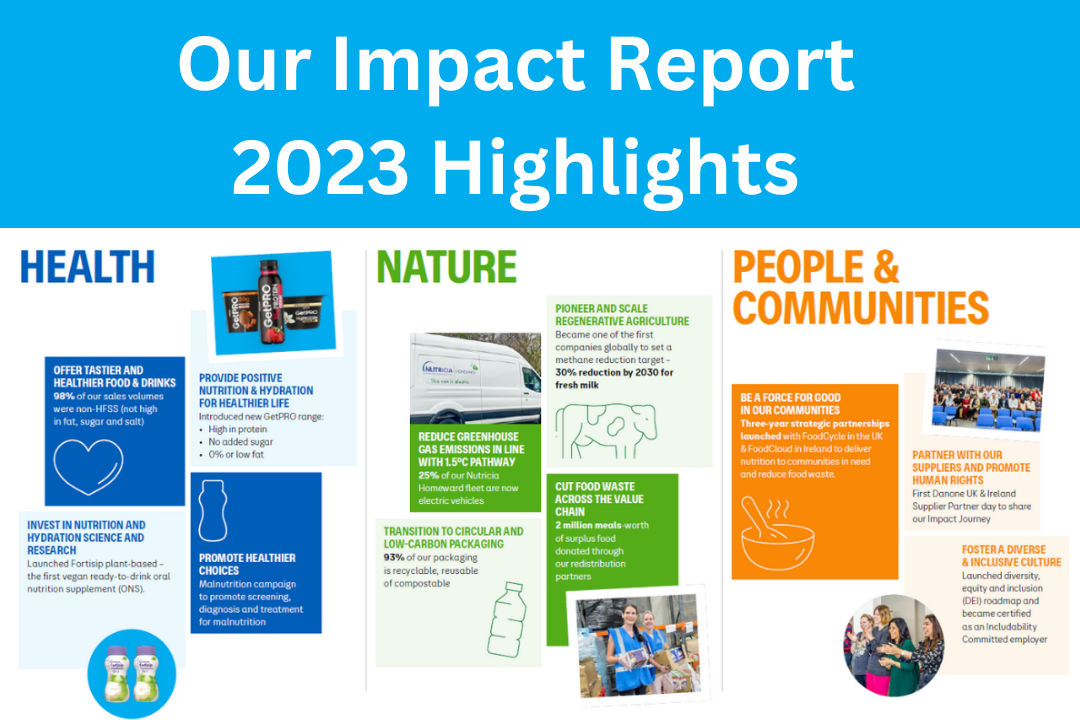When you think of Danone, it's probably yogurts that immediately come to mind. You may not know about our nurses who support patients with medical nutrition, or the work we’re doing with farmers to support them with regenerative agriculture practices. In fact, there’s probably a lot you may not be aware of when it comes to Danone. So, the release of our 2023 Impact Report is a great opportunity to highlight the people and projects that make up our business. Here, Amy Mcdonnell, Senior Sustainability & Social Impact Manager at Danone UK & Ireland, reflects on our journey to developing our new report and why it was such an important step.
Tell us about the new Impact Report – why has it been created?
In today’s world, I think a lot of people are interested in interacting with businesses and brands that they feel are working to create a positive impact. People want to see companies doing more, and there is a growing expectation that businesses should be based on sustainable models that positively impact people and the planet. Danone has been reflective of this ideology since we first began as a company, when our founder Isaac Carasso started selling yogurts with ferments in Spain to help address child malnutrition. Since then, purpose is embedded in everything we do, and our B Corp Certification is a demonstration of our commitment to this ethos.
At Danone, everything we do is anchored by our Impact Journey – a framework for delivering positive impact. It was launched globally in 2023 and reinforces our central mission to bring health through food to as many people as possible. We know that the health of people and the planet are interconnected – and we have a responsibility to make a positive impact on both. So, our impact journey outlines the areas where we can make the most difference across three key pillars: health, nature and people & communities.
Having such a clear journey with key goals across each of our priority areas also provides a useful reporting framework. This is the first year Danone UK & Ireland has released an Impact Report, but I think it’s really important to showcase the hard work people are involved in across Danone as we work towards our goals at both a global and local level. It’s also an opportunity to authentically talk about areas where we know we can do better – and set out our plans for achieving it.
Why do you think it’s important for companies to report on their progress?
I'm seeing more and more people, activists and organisations calling out companies for not being transparent. Whether it’s to do with their health credentials, their impact on the planet or how they treat the people within the company or supply chain. People want to be able to make informed choices about the companies they’re interacting with – particularly as we continue to face social and environmental challenges in an ever-changing world.

Last year, Danone UK & Ireland set sector-leading health commitments when we proactively committed to maintaining a healthy and tasty portfolio. We’ve set ourselves a clear objective that at least 90% of our portfolio of products by sales volume will not be high in sugar, salt or fat (HFSS), defined by the UK Government’s current policy and legislation relating to HFSS. And we want to see others across the industry doing the same.
Our Impact Report gives us the important opportunity to share our progress against commitments like this, on health and beyond. It also looks at our environmental sustainability metrics like greenhouse gas emissions & food waste, and explores how we’re working to improve our culture and deliver for our people through our Diversity & Inclusion initiatives, as well as the work we’re doing to impact the communities around us.
We’re certainly not perfect – but I like how the report doesn’t shy away from the numbers – holding us accountable to the progress that we need to uphold, and setting out our roadmap for achieving more.
What was your role in developing the report?

Amy McDonnell volunteering at FoodCycle, Danone UK & Ireland's charity partner.
In my role, I work closely with teams across our business to coordinate and drive progress in line with our Impact Journey strategy. So for the report, my experience and understanding of the business was really important in bringing together the threads of our Impact Journey story. My team worked closely with people across the organisation to build a narrative of our progress, identify key highlights and assess areas we still need to tackle.
Since a key objective for the report was transparency, we were keen to include data wherever possible to help paint a picture of our progress for readers. Part of my role was to help colleagues understand why data sharing is so important, and then to ensure we share the data in a way that’s easy to interpret throughout the report. You’ll see some of this data brought to life on the specific KPI pages at the beginning of our report, showcasing progress against our objectives.
As part of the project, I also really got to discover some of the lesser-known stories and partnerships from across the business. Like our collaboration with Well Grounded, an organisation that runs specialty Coffee Training Academies for adults who are unemployed and looking for rewarding careers in coffee. Or the vital work our healthcare teams are doing to support patients who are tube fed to safely reuse equipment. This helps free up space in patients’ homes while reducing plastic waste and the number of deliveries required.
What would be one of your highlights from the report?
There’s so many fantastic proof points throughout the report that we can be proud of. For me, I think the work we’re doing to drive down our Green House Gas (GHG) emissions is so interesting, and of course critical. There’s so much varied work happening right across our global supply chain to help ensure we are reducing our emissions and responding to the challenges and impacts of climate change. This includes things like making switches to renewable energy, opting for lower carbon packaging innovations, working with farmers to implement regenerative agriculture practices....and so much more.
In the UK and Ireland I’m particularly proud of the progress we’ve made to reduce emissions within our factories. It’s also really great to see the ways we are optimising the transport of our products from factory to customers to help minimise our environmental impact. Head to page 22 of our interactive report to find out more about this!

